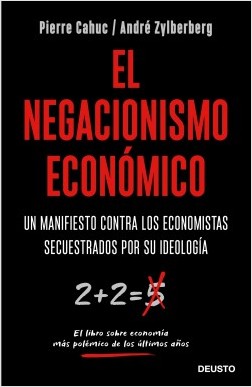The Natural survival of work
job creation and job destruction in a growing economy
- ISBN: 9780262033572
- Editorial: The MIT Press
- Fecha de la edición: 2006
- Lugar de la edición: Cambridge (Massachusetts). Estados Unidos de Norteamérica
- Colección: Economics
- Encuadernación: Cartoné
- Medidas: 24 cm
- Nº Pág.: 164
- Idiomas: Inglés

How to manage the unemployment that occurs in the process of the continuous job destruction and creation responsible for growth in today's economies: what recent economic research tells us about wages, incentives to work, and education. Every working day in the United States, 90,000 jobs disappear - and an equal number are created. This discovery has radically altered the way economists think about how labor markets work. Without this necessary phenomenon of "creative destruction," our economies would experience much lower growth. Unemployment is a natural consequence of a vigorous economy - and is in fact indispensable to it. In "The Natural Survival of Work", labor economists Pierre Cahuc and Andre Zylberberg consider how to manage the unemployment that results from the desirable churning of the economy, drawing on recent economic research and citing examples from France, the U.S., the U.K., and elsewhere. Unemployment in many continental European countries, particularly among youth, has reached high levels in recent years, and Cahuc and Zylberberg criticize labor market policies that are based on politics rather than economics. They discuss the minimum wage in both the U. S. and They find fault with the idea that work-sharing is a cure for unemployment. They consider how to design a system of unemployment insurance that does not destroy the incentive to find work, and examine the effect of government regulation of layoffs. Finally, they analyze the true impact of education and training as remedies for unemployment. Economists today know more about how labor markets work. Policies could be more effective, Cahuc and Zylberberg argue, if they were based upon this knowledge.









